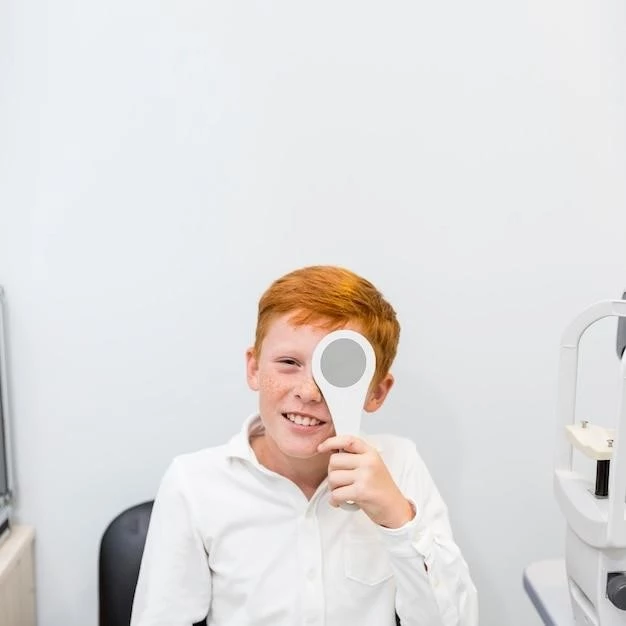Understanding Cataracts⁚ Causes and Treatment
Causes of Cataracts
Cataracts develop when proteins in the lens of the eye clump together‚ clouding vision. Aging and exposure to UV light are common causes. Other risk factors include smoking‚ diabetes‚ and eye injuries.
Treatment Options
Cataracts can be treated surgically by replacing the cloudy lens with an artificial one. This procedure is safe and highly effective‚ restoring clear vision for the majority of patients. Non-surgical approaches include using eyeglasses or contact lenses to temporarily improve vision.
Managing Ataxia Symptoms⁚ Tips and Techniques
Understanding Ataxia
Ataxia is a neurological condition that affects coordination and balance due to damage to the cerebellum or its connections. Symptoms may include lack of coordination‚ tremors‚ and difficulty walking. It can be hereditary or acquired through conditions like multiple sclerosis.
Tips for Managing Symptoms
Strategies for managing ataxia symptoms include physical therapy to improve coordination‚ speech therapy for speech difficulties‚ and assistive devices like canes or walkers for mobility support. Maintaining a healthy lifestyle and staying active can also help manage symptoms.
Coping with Deafness⁚ Support and Resources
Support Networks
Deaf support networks provide valuable connections with others facing similar challenges. These communities offer emotional support‚ resources‚ and advocacy for deaf individuals and their families. Joining support groups can enhance social interaction and empowerment.
Available Resources
Deaf individuals can access a variety of resources like educational materials‚ sign language interpreters‚ assistive technologies‚ and captioning services. Organizations and websites dedicated to the deaf community offer valuable information‚ support‚ and guidance for navigating daily challenges and accessing essential services.

Preventing Cataracts⁚ Lifestyle Changes and Remedies
Healthy Habits
Maintaining a diet rich in antioxidants‚ wearing sunglasses to protect from UV exposure‚ quitting smoking‚ and managing conditions like diabetes can help prevent cataracts. Regular eye check-ups are also essential for early detection and treatment.
Natural Remedies
While natural remedies like consuming foods high in vitamins C and E or using eye drops containing antioxidants may be beneficial‚ it’s crucial to consult with an eye care professional before relying solely on these methods. Incorporate natural remedies as complementary to medical treatment for cataracts.
Ataxia Research Breakthroughs⁚ Recent Developments
Current Studies
Ongoing research on ataxia focuses on understanding genetic factors‚ developing new therapies like gene therapy and stem cell treatments‚ and improving symptom management. Collaborative efforts between researchers and healthcare providers aim to advance knowledge and enhance patient care.
Future Prospects
The future of ataxia research holds promise for targeted treatments‚ precision medicine approaches based on individual genetic profiles‚ and potential breakthroughs in neuroregeneration therapy. Advancements in technology and collaborative efforts worldwide offer hope for improved outcomes and quality of life for those with ataxia.
Sign Language Basics for Deaf Individuals
Introduction to Sign Language
Sign language is a visual means of communication used by Deaf individuals‚ relying on hand shapes‚ movements‚ and facial expressions to convey messages. Learning sign language promotes inclusivity and facilitates effective communication within the Deaf community.
Learning Resources
Deaf individuals can access online tutorials‚ classes‚ and community programs to learn sign language. Books‚ videos‚ and interactive apps provide valuable resources for mastering sign language skills. Immersing oneself in Deaf culture and practicing regularly are key to becoming proficient in sign language.
Cataract Surgery⁚ What to Expect
Preparing for Surgery
Before cataract surgery‚ your eye doctor will perform a comprehensive eye exam to assess your vision and overall eye health. You may need to discontinue certain medications and follow specific guidelines for fasting prior to the surgery. Discuss any concerns or questions with your healthcare provider to ensure a smooth surgical experience.
Post-Operative Care
After cataract surgery‚ it’s crucial to follow the post-operative care instructions provided by your eye surgeon. This may include using prescribed eye drops‚ avoiding strenuous activities‚ and attending follow-up appointments to monitor your healing progress. Inform your doctor promptly if you experience any unusual symptoms or changes in vision during the recovery period.
The Connection Between Ataxia and Balance Disorders
Understanding Balance Disorders
Balance disorders impact a person’s stability and spatial orientation‚ potentially causing dizziness‚ vertigo‚ and unsteadiness. These disorders can stem from various sources‚ including inner ear problems‚ neurological conditions‚ and musculoskeletal issues. Proper diagnosis and treatment are essential for managing balance-related symptoms.
Treatment Approaches
Treatment for balance disorders may involve physical therapy to improve coordination‚ vestibular rehabilitation to address inner ear issues‚ medication to manage symptoms like vertigo‚ and in some cases‚ surgical interventions. A multidisciplinary approach tailored to the specific cause of the balance disorder is crucial for effective management and improved quality of life.
